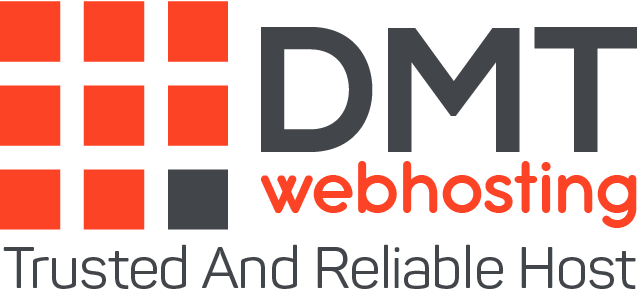Today, organic search results generate over 50% of website traffic. This is why more and more companies are turning again to search engine optimization or SEO and SEO management to increase their income and their business.
Whether you are familiar or new to SEO, this article provides all the information you need to start developing an SEO strategy or investing in professional SEO management services. Read on to learn more about SEO and SEO management!
What is SEO?
SEO, also known as search engine optimization, improves your visibility in relevant search engine results (SERP) pages on search engines such as Google, Yahoo!, and Bing. It uses a combination of strategies and techniques to boost your visibility, which can lead to increased traffic to your website.
Compared with other digital marketing strategies, such as paid SEO, SEO does not provide results overnight. It can take several months for SEO to work. These results, however, are often worth the wait.
What is SEO management?
SEO management can refer to the management of your SEO strategy by your company or agency. As part of SEO management, your team or agency develops, directs and modifies your strategy in order to maximize your results and achieve your marketing, sales and business objectives.
Many internal marketing departments have multiple responsibilities and have no SEO training. It is therefore common for companies to invest in professional SEO management services. A recent study, for example, found that 55% of companies work in partnership with an SEO agency.
With SEO management, your team or agency develops, directs and modifies your strategy to optimize your results and achieve your marketing, sales and business objectives.
Whether your company collaborates with an agency or manages your strategy internally, it is essential to understand what SEO management entails. In this way, you can lay the foundation for a competitive strategy that generates income for your business.
4 steps for successful SEO management
If you want to create a successful SEO strategy, you must be successful in SEO management. Even if you work in partnership with an experienced SEO agency, such as DMTwebhosting, it is useful to understand how SEO management works.
The four steps to successful SEO management include:
-
AUDIENCE RESEARCH
Companies that excel in SEO have a deep understanding of their audience. They have done the research and understand what their target market wants from their business, product or service. These companies also know the common questions and problems of their target audience.
If you want to be successful in SEO management, you have to understand your target market at this level.
Invest your time in finding your target market and answer the following questions:
- What problems does my product or service solve for users?
- What problems does my target market have with other suppliers?
- What demographic characteristics define my target audience?
- Where does my target market go when they have problems or questions?
Even if you have developed marketing personas for your target audience, it is useful to reassess your previous research. Consumers can change over time. If you use obsolete marketing personas, your SEO strategy may collapse, which will not help you and your business.
Once your audience is sought, you can take the next step in launching your plan.
-
ANALYSIS OF COMPETITORS
Competitive analysis can offer extremely interesting information. This is why it is at the heart of SEO management. Whether you work in partnership with an SEO agency or lead the initiative internally, incorporate a competitor analysis into your plan.
Look at direct and indirect competitors during a competitive analysis
For competitor analysis, it is helpful to consider the following types of competitors:
Direct competitors: These are companies with which you compete, offline and online. You probably already have a list of direct competitors to reference. Now you want to look at their online presence and their investment in SEO.
Indirect competitors: These are companies with which you compete in search results. For example, two manufacturing companies may compete for the search term “local manufacturing companies”, even if they produce different products.
As part of the analysis of your competitors, you want to determine the SEO strategy of these companies. In some cases, you may find that a direct competitor does not have an SEO strategy. This is where indirect competitors can help, as most of them owe their SEO in the search results rankings to SEO.
Discover a company’s SEO strategy by consulting the following:
- Backlink Profile
- Age of the estate
- Optimization practices
- Traffic value
- Targeted keywords
- For many companies, this step is a challenge.
If you are new to SEO, this introduces several aspects of technical SEO. This is where the know-how of an SEO agency like DMTwebhosting becomes precious. Thanks to the experience of our team, we can quickly assess the status of your direct and indirect competitors.
In addition, we have access to various tools to streamline this process. In comparison, internal SEO management (and department budgets) can limit your team. These limitations can have a direct impact on the quality and results of your competitors’ analysis, which can affect your SEO strategy.
-
OPTIMIZATION OF THE WEBSITE
With your target market and your main competitors sought, your business can begin the process of optimizing your website for research. This process can take time. To tackle this task with realistic checkpoints or goals.
For example, if you have 25 pages on your site, it is probably impossible for your team to optimize all of these pages in one month. You have additional responsibilities to manage, although some companies solve this problem by taking advantage of SEO writing services for websites.
This service, offered by DMTwebhosting, provides your company with SEO-optimized text specific to your brand. Even if your business uses this service, it is important to remember that the results still take time. Publishing your optimized content earlier can help you see these results sooner, however.
If you’re optimizing your content internally, focus on using your targeted keyword in several places:
A checklist for optimizing SEO management
- Title tag: a title tag is displayed in the search results. This is the title of your page and should link readers by encouraging them to click on your website. Your title tag should also use your targeted keyword.
- Meta description: a meta description also appears in the search results. This is the description of your page and expands your title to motivate users to visit your site. Like your title tag, your meta description should also include your targeted and associated keywords.
- Titles: Your titles are displayed on your page, dividing your content into organized sections. For best results, you should use your keywords in all of your headings. In some cases, however, you cannot for readability reasons.
- Images: a page must contain images useful for users. Images can improve the readability of your page, as well as the reader’s understanding of complex subjects. The filename of the image, as well as the alternative text of the image, should use your keyword if it makes sense.
- Content: The content on your page provides readers with what they are looking for, whether it be answers to product questions or general views on services. Within your paragraphs, it is crucial to use your keywords naturally for better readability.
When optimizing your content, it is essential that your team follows SEO best practices. This means avoiding, for example, keyword stuffing and any other “black hat” tactics that could prevent your business from appearing at the top of search results.
-
MONTHLY REPORT
Like other digital marketing strategies, SEO uses data. With data from your website, you can measure the success and performance of your SEO strategy. In addition, you can identify areas for improvement and make decisions based on the data during your next action.
If you work in partnership with an SEO agency, such as DMTwebhosting, you can expect to receive monthly reports from your dedicated account manager. In some cases, you may want to monitor your SEO strategy once a week, which you can do with our team.
Even if you decide to outsource your SEO management internally, you still want to establish a routine program to check and measure the performance of your strategy. A monthly or weekly basis is the industry standard. This is why many companies follow this calendar.
As part of your monthly reports, try to consider increases in the following areas:
- Organic traffic
- Ranking in search results
- Backlinks
- Conversions
You can use tools such as Google Analytics, Google Search Console and Ahrefs to monitor your progress.
Depending on your business, you may find it difficult to track the full results of your SEO strategy.
A list of tools for SEO management
With professional SEO management, you can solve this problem. You can, for example, use a call tracking tool. This tool allows you to track the calls generated by your website, which allows you to monitor your SEO results without any hassle.
Whatever your approach to reporting, whether with the expertise of an agency like DMTwebhosting or the resources of your internal team, integrate reporting into your SEO management. It can inform and improve your strategy, as well as demonstrate its value to business decision-makers.
About the author
DMTwebhosting.com’s Editorial Team prides itself on bringing you the latest web hosting news and the best web hosting articles!
You could also link to the news and articles sections:


